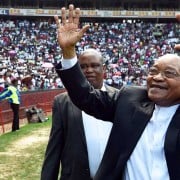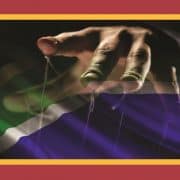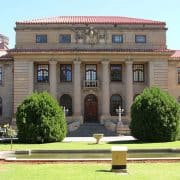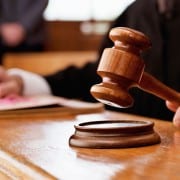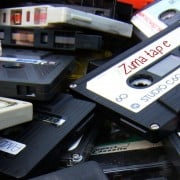|
Getting your Trinity Audio player ready...
|
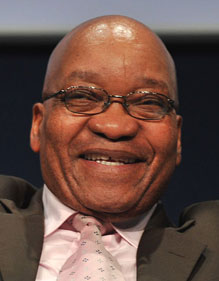 Dear Corruption Watch
Dear Corruption Watch
It was heartening to see our judicial system work when the court ordered the release of the spy tapes to the DA. But what now? What "smoking gun" would they need to find to convince a judge that the president should stand trial to answer the many counts of corruption against him?
True Democrat
Dear True Democrat,
At present the Democratic Alliance (DA) is not seeking to convince a court that the president should stand trial to answer the many counts of corruption against him. The DA has approached the high court for an order reviewing and setting aside the decision to withdraw the prosecution against the president.
This means that if the DA is successful, then the original decision to prosecute President Jacob Zuma will be revived. Zuma would be facing prosecution. However, that would not mean that he would automatically then face a trial. There would be a real risk that the national director of public prosecutions (NDPP) may decide not to proceed with the prosecution while Zuma is still president of South Africa.
Whether or not such a decision would be lawful is hotly contested and the topic for a different Corruption Watch column.
The NDPP could find some other ground on which to decide not to prosecute Zuma, in which case the DA or someone else may decide to review that decision and this hullabaloo would start again.
So, to reformulate the question somewhat, what "smoking gun" would the DA need to find to convince a judge to set aside the decision not to prosecute Zuma? Any number of smoking guns might exist on the tape transcripts. However, at their core what the DA is likely to be looking for is some evidence that one or more of the grounds on which the then acting NDPP, Mokotedi Mpshe, made his decision was not permissible in terms of the Constitution or in terms of the National Prosecution Authority Act. The DA will then use that ground to argue that Mpshe acted irrationally or for an improper purpose.
To illustrate, let us assume it emerges from the transcripts that Mpshe actually made his decision to protect the ANC and Zuma from embarrassment. This would constitute clear evidence that Mpshe acted for an improper purpose because the NDPP is meant to discharge his duties without fear, favour or prejudice. A decision to drop a prosecution in order to protect a political party or a politician from embarrassment is not a decision free of fear, favour or prejudice.
However, the transcripts are most likely to show more complicated and less constitutionally clear reasons why the charges against Zuma were dropped. When he announced his decision, Mpshe told the public that the charges were dropped because of political manipulation. The tapes may substantiate that claim or show it to be a lie. If the tapes simply show Mpshe was telling the truth about what motivated him to drop the charges against Zuma, then the high court will have to determine the question that has always been at the heart of this case: is political manipulation motivating a decision to institute charges a sufficient reason for the NDPP to then drop those charges?
As journalist Franny Rabkin has argued, gaining access to the tapes is largely just a side show to this important and difficult question.
We wait to see the impact of the revelation by former NDPP Bulelani Ngcuka that the decision to prosecute was made without his influence and before the tapes were made.
• This article was first published in Sunday Times: Business Times


